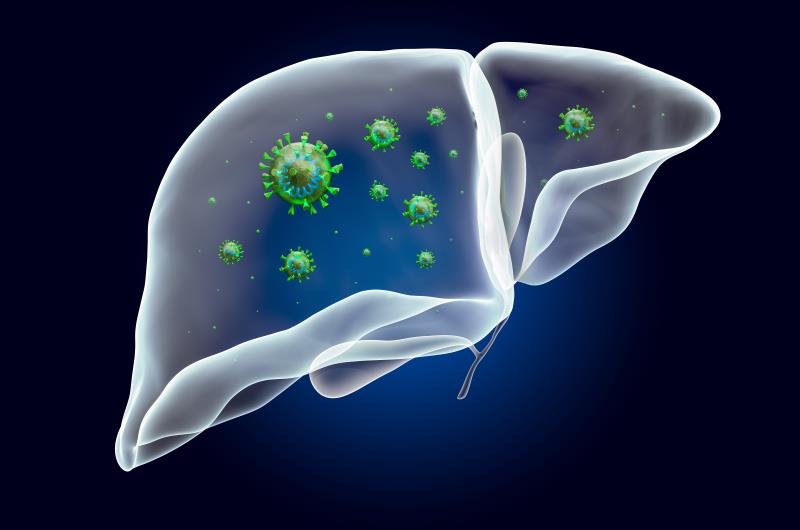
A six-week course of sofosbuvir-velpatasvir is insufficient to achieve virological response among patients with recent hepatitis C virus (HCV) infection, according to the phase IV REACT* trial.
In this international study, 196 patients with recently acquired HCV infection (≤12 months duration of infection; median 25 weeks) were randomized to receive a co-formulated tablet of sofosbuvir (400 mg)/velpatasvir (100 mg) QD for 12 weeks (standard course) or 6 weeks (short course). The primary analysis population comprised 192 patients (median age 43 years, 96 percent cis male, 83 percent Caucasian, 69 percent HIV positive, baseline HCV RNA 5.6 log 10 IU/mL), 93 and 99 in the short and standard course arms, respectively. A majority of the patients presented with primary infection (63 percent).
End of treatment response was comparable between groups (91 percent each; difference -0.5 percent; p=0.896). [CROI 2020, abstract 121]
However, sustained virological response at 12 weeks (SVR12) was lower among patients who received the short vs the standard course of sofosbuvir-velpatasvir (82 percent vs 91 percent; difference -9.2 percent, 95 percent confidence interval [CI], -18.9 to 0.5 percent; p=0.063).
Seventeen patients on the short course experienced treatment failure compared with nine on the standard course. There were two deaths in the short course arm and none in the standard course arm and re-infections occurred in three and two patients, respectively. Nine patients in the short course arm experienced relapse compared with two in the standard course arm.
After excluding the five patients who were lost to follow up (three and two in the short and standard course arms, respectively), two deaths, and five confirmed re-infections, SVR12 was significantly lower with the short course of sofosbuvir-velpatasvir vs the standard course (89 percent vs 98 percent; difference -8.8 percent, 95 percent CI, -15.6 to -1.2 percent; p=0.021).
This translated to a 9 percent relapse rate in the short course arm (vs 2 percent in the standard course arm) which was “deemed unacceptably high” and led to early termination of the trial, said study author Associate Professor Gail Matthews from The Kirby Institute, The University of New South Wales, Sydney, New South Wales, Australia, who presented the findings at CROI 2020.
While there were no clear predictors of virological failure, potential contributing factors were older age (median 50 years among those who experienced treatment failure vs 43 years in the overall cohort), higher baseline HCV RNA (median 6.7 vs 5.6 log 10 IU/mL), and longer duration of infection (median 28 vs 25 weeks). However, the small incidence of failure precluded analysis of predicting factors, said Matthews.
Ninety-five percent treatment adherence was achieved by 95 and 85 percent of patients on the short and standard course, respectively. Eleven serious adverse events occurred, one of which was treatment related, though there were no treatment-related discontinuations, and the three deaths occurred post-treatment. There was one possible case of treatment-emergent resistance.
“Uncertainty exists over the role of short duration therapy for acute or recently acquired HCV infection in the era of direct-acting antivirals (DAAs). [C]urrent guidelines … are conservative in their recommendations and no DAA regimens are currently approved for this indication,” said Matthews.
“Despite the higher relapse rate in the short [course] arm, overall treatment in REACT was highly successful and safe, supporting the feasibility and importance of treating early,” she added. “All the patients with virological failure were successfully retreated, the majority with first-line regimens.”